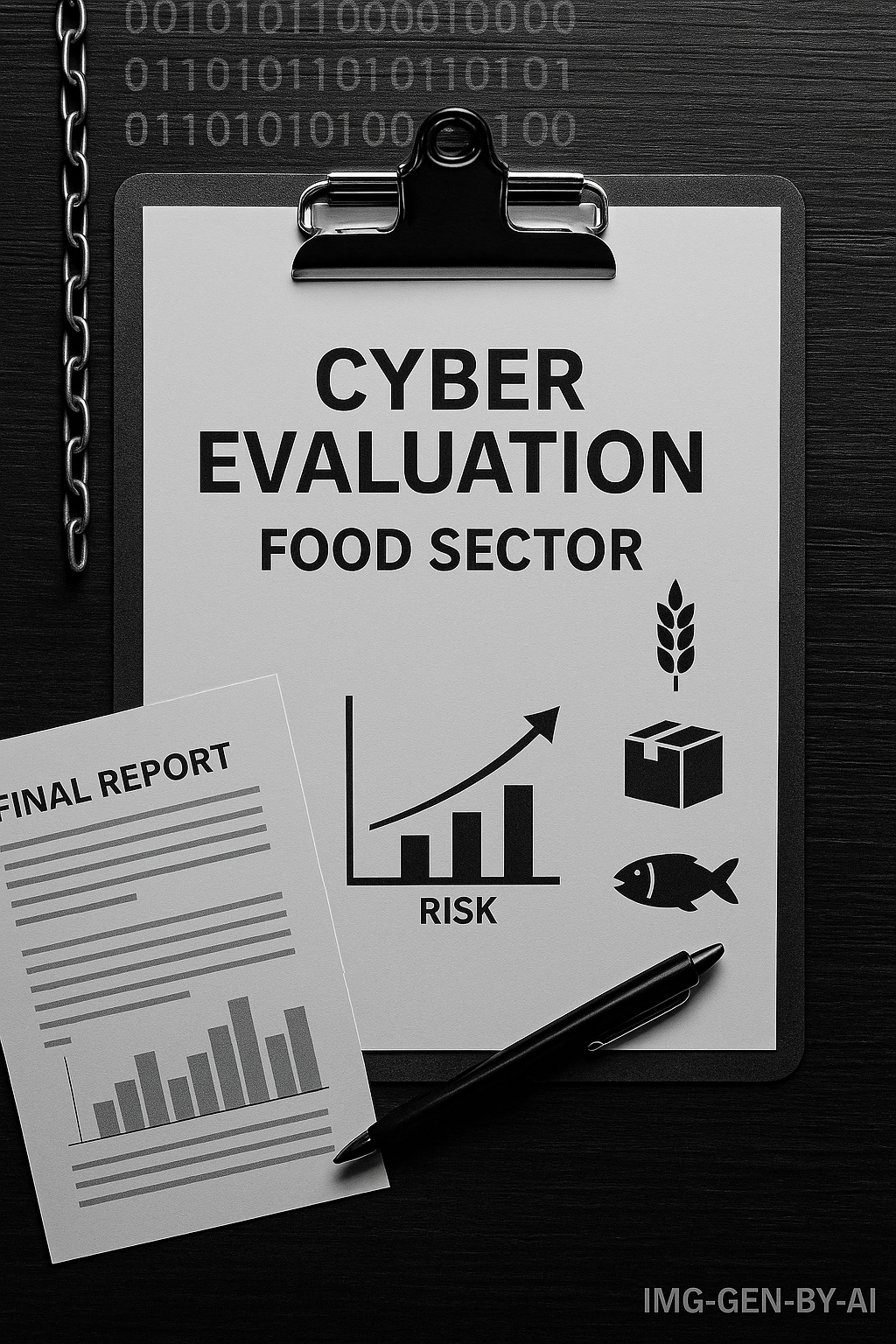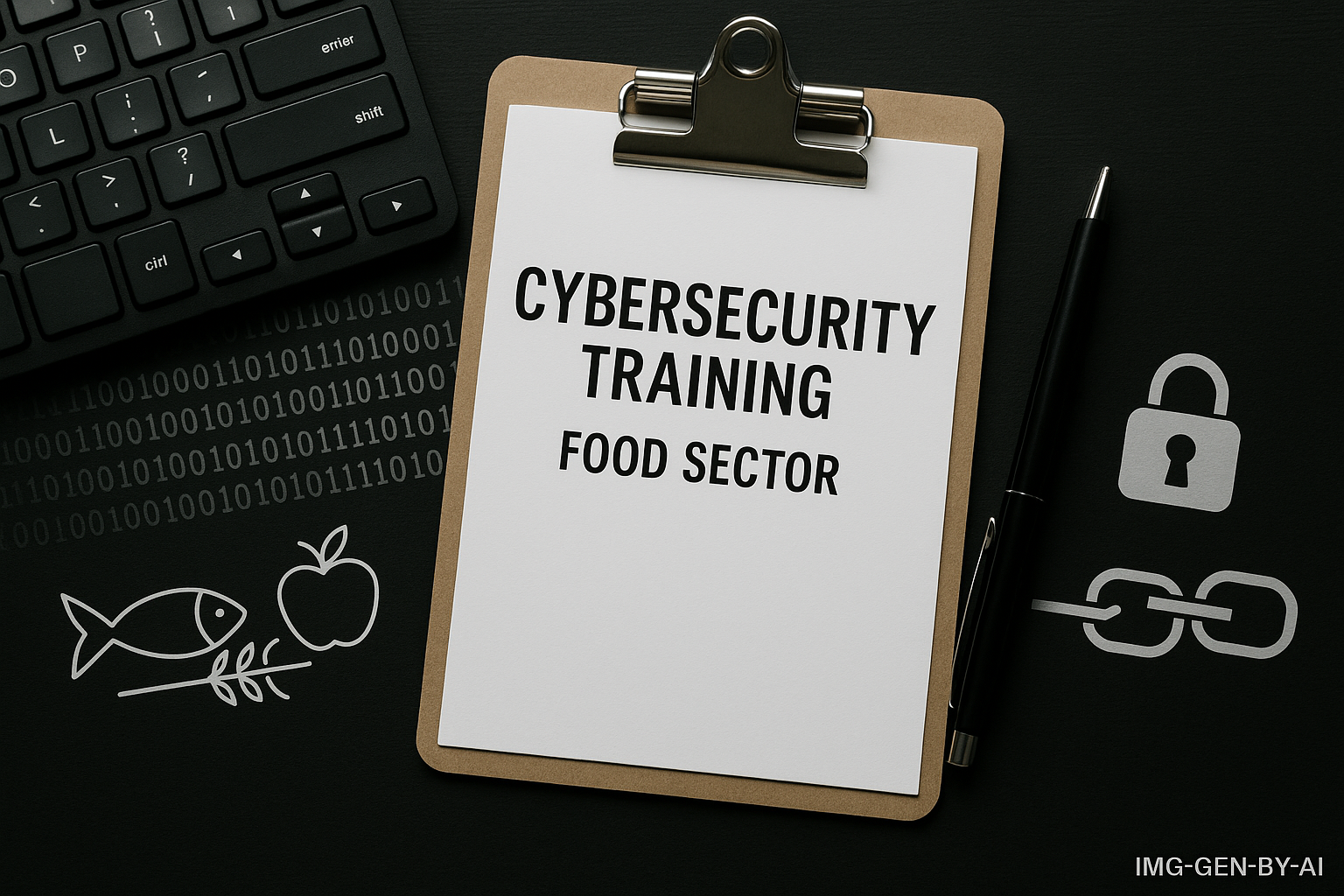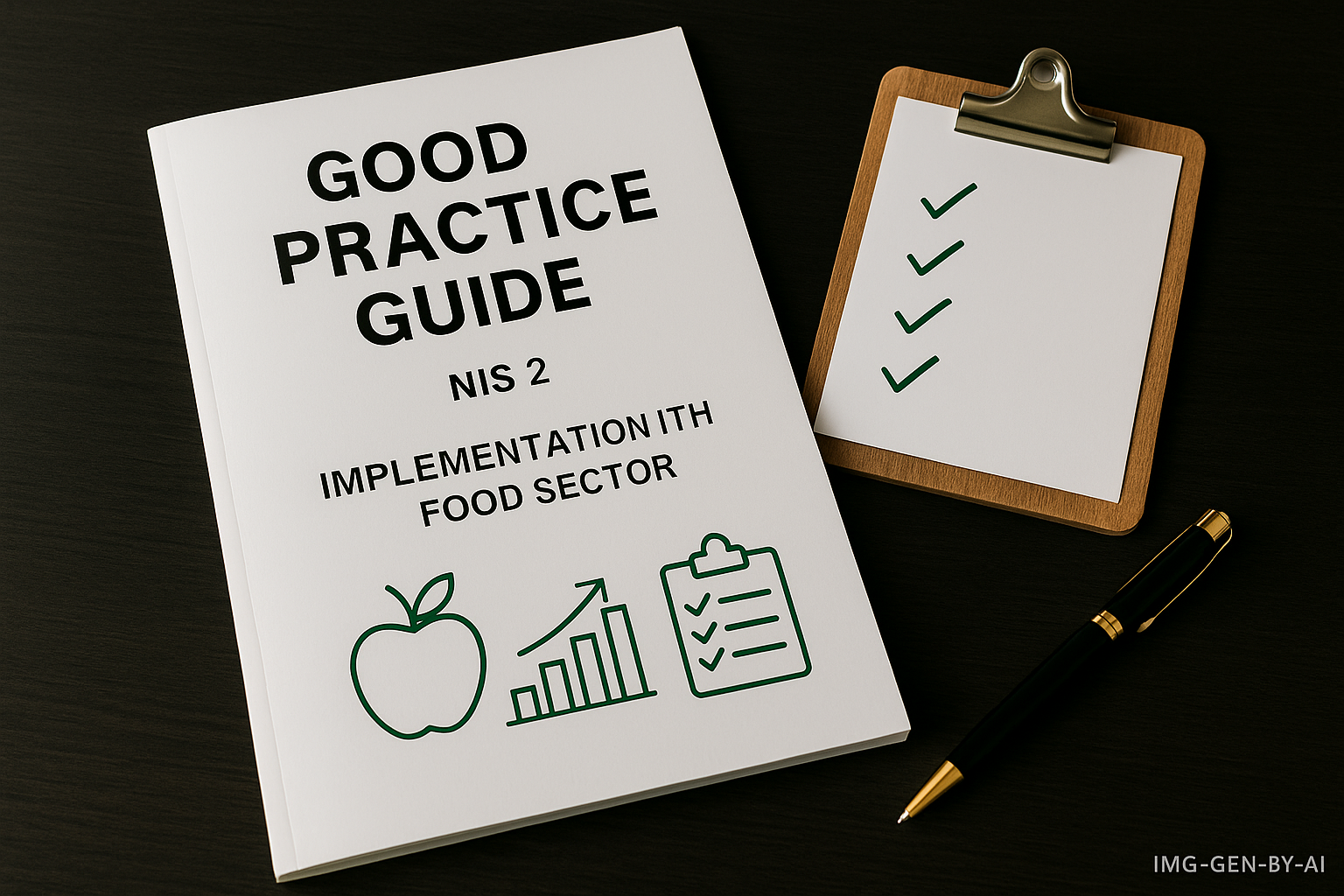-
Entry 7 - Completion of Cybersecurity Training for the Food Sector
La data de 16 iulie 2025, echipa de implementare a proiectului INFORB a finalizat sesiunile de instruire dedicate managementului și personalului tehnic responsabil de securitatea cibernetică în sectorul alimentar. Sesiunile de instruire au fost organizate online, în mai multe etape, fiind dedicate specific fiecărei regiuni de dezvoltare din România și Bulgaria. Acestea au abordat subiecte…

-
Entry 6 – Cybersecurity and Supply Chain Evaluation in the Food Sector
La data de 24 iunie 2025, echipa de implementare a proiectului INFORB a finalizat studiul având ca obiectiv evaluarea nivelului de maturitate digitală și a practicilor de securitate cibernetică în cadrul companiilor din sectorul alimentar. Analiza s-a concentrat asupra caracteristicilor organizaționale (dimensiune, localizare, profil de activitate) și a infrastructurii IT&C utilizate, inclusiv a modalităților prin…

-
Entry 5 – First Cybersecurity Training Session for Technical Staff in the Food Sector
La data de 21 ianuarie 2025, echipa de implementare a proiectului INFORB din cadrul DNSC a organizat prima sesiune de instruire dedicată personalului tehnic responsabil de securitatea cibernetică în organizațiile din sectorul alimentar. Programul a abordat teme precum cerințele Directivei NIS2, termenele de conformare, responsabilitățile unui CISO, precum și o prezentare interactivă a platformei CORB,…

-
Entry 4 – Publication of the Good Practice Guide for NIS 2 Implementation in the Food Sector
On November 31, 2024, the INFORB project published its Good Practice Guide dedicated to the implementation of the NIS 2 Directive within the food sector. The guide outlines sector-specific recommendations, risk management measures, and case-based insights tailored to food production, processing, distribution, and retail actors. It also addresses both technical and organizational safeguards aligned with EU cybersecurity policy. Developed in collaboration with industry stakeholders, cybersecurity professionals, and public authorities from Romania and Bulgaria, the guide serves as a reference document for harmonized, practical application of NIS 2 obligations.

-
Entry 3 – First Training for Management and Launch of the CORB Cooperation Platform
La data de 12 noiembrie 2024, proiectul INFORB a marcat un dublu eveniment: organizarea primei sesiuni de instruire dedicate managementului entităților din sectorul alimentar și prezentarea oficială, în format live, a platformei de cooperare transfrontalieră CORB (România–Bulgaria). Sesiunea a oferit instruire specifică privind obligațiile de conformitate, guvernanța riscurilor și scenariile de amenințări relevante pentru sectorul…

-
Entry 2 – First Training for Management and Launch of the CORB Cooperation Platform
On November 12, 2024, the INFORB project marked a dual milestone: the first cybersecurity training session dedicated to the management of food sector entities, and the official live presentation of the cross-border cooperation platform CORB (Romania–Bulgaria). This session provided targeted knowledge on regulatory obligations, risk governance, and sector-specific threat scenarios aligned with the NIS 2 Directive. Management-level representatives gained insights into strategic cybersecurity planning and incident preparedness. Simultaneously, the CORB platform was publicly demonstrated as a secure digital environment designed to support collaboration, threat intelligence exchange, and coordinated response between Romanian and Bulgarian authorities and stakeholders in the agri-food sector.

-
Entry 1 – Project Launched – Initial Planning and Baseline Assessment within INFORB
On November 21, 2023, the INFORB project reached a key milestone with the development and formalization of implementation plans and baseline indicators. This stage marked the strategic alignment between partners from Romania and Bulgaria, establishing the project's operational framework, the deliverables timeline, and the initial assessment of cybersecurity levels in the food sector. By defining baseline values and key performance indicators (KPIs), the necessary foundation was laid for monitoring both progress and the long-term impact of the project. The planning phase also integrated sector-specific priorities in line with the requirements of the NIS 2 Directive and the objectives of cross-border cooperation.

